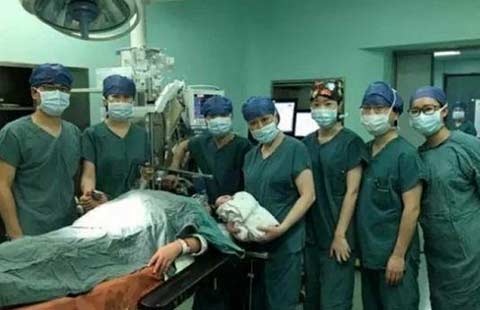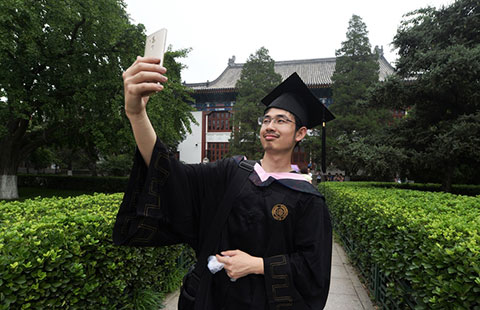Chinese robot wars set to erupt
By He Wei (China Daily) Updated: 2012-12-06 09:26The municipal government of Shanghai has listed robots as one of its major industries in the coming years, and it hopes the industry will generate as much as 20 billion yuan by 2015, according to Dai Haibo, director of the Shanghai Commission of Economy and Information Technology.
So far, the city has garnered industry heavyweights such as Germany's Kuka AG, Switzerland's ABB Group, Japan's Fanuc Corp and China's top indigenous robot manufacturer, Siasun Robot and Automation Co.
The local government is also encouraging such businesses to settle in the Shanghai Industrial Park of Robotics, the largest robotics zone in the country, said Wang Huai, head of Baoshan Gucun township government in Shanghai.
The 3.09-square-kilometer zone aims to serve leading robot makers by producing state-of-the-art products and contributing to the internationalization of Chinese robotics standards, he said.
However, the government has yet to subsidize its own enterprises, Zhao noted. "It will probably take another five years to get those details right on track."
Nevertheless, the lack of preferential policies towards local businesses may spell opportunities for their foreign counterparts, and the industry giants are looking to capitalize on the nation's automation boom.
In October, Kuka laid the cornerstone of a new plant in Shanghai, which it hopes will meet the soaring demand for automation in the region.
As the only factory outside of Kuka's home country, the facility will reach an annual capacity of 3,000 units in its first year and is expected to grow to 5,000 units by the end of 2015, according to CEO Till Reuter.
Kuka's robot series is set to be applied widely in the automotive industry, he said. That accords with statistics from the IFR showing that at 36 percent, the auto sector has the largest share of industrial robot usage worldwide.
Meanwhile, ABB has just set up the first research and development platform for its Train Control and Monitoring System in China, a technique that is critical to traction systems and a core technology in urban mass-transit vehicles.
The company established its first global quality center in Shanghai earlier this year, following the relocation of its robotics research and development headquarters to the city from Detroit in 2006.
Gu Chunyuan, head of ABB's regional Discrete Automation and Motion Control Division in North Asia and China, predicted that more companies will invest in robotics as they look to cut operating costs and improve product quality and consistency. That would see the market to grow into one of the most developed in the world.
Manufacturers also want to employ robots in other sectors. Switzerland's Staubli Holding AG is planning to double its sales this year, compared with 2011, with hundreds of robots in the Chinese market.
So far this year, the company has invested 200 million yuan in expanding its manufacturing facility in Hangzhou, Zhejiang province, for its three divisions: textile machinery, connectors and robotics. Looking forward, it also plans to build an industrial robot assembly production line.
- Fifth lighthouse to shine on S China Sea
- Tiangong II laboratory to enter test phase after delivery
- Smaller rivers proving the bigger challenge
- Identical natural quadruplets born in Shanghai: 1 in 13 million
- China's second space lab Tiangong-2 reaches launch center
- Arbitral court not best place for South China Sea dispute settlement: Croatian law expert
- Growth stable, meets expectations, Xi says
- Tibet forum: Road to progress
- 3D printer gives man a new spine
- UN chief: Settle differences peacefully
![A giant 'Kuratas' robot on display at an exhibition in Tokyo in November. The 4-meter-high, limited edition, made-to-order robot is controlled by a pilot in its cockpit, or via a smartphone. [Photo/Agencies] Chinese robot wars set to erupt](../../images/attachement/jpg/site1/20121206/0023ae9885da122a35c62c.jpg)










